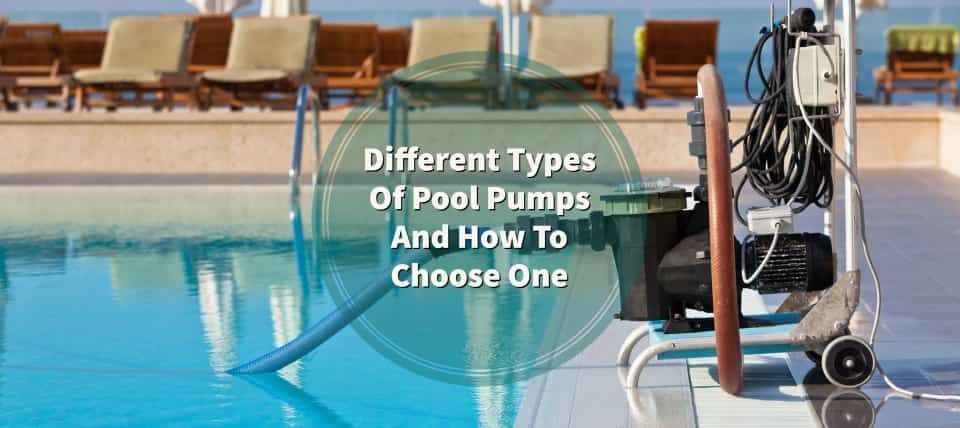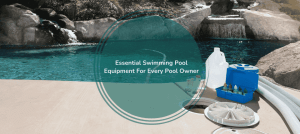When it comes to maintaining a clean and inviting swimming pool, the heart of the operation lies within the pool pump. As an essential component of any pool system, the pump ensures proper water circulation, filtration, and sanitization. However, with several types of pool pumps available in the market, it can be overwhelming to determine which one suits your needs best.
In this comprehensive guide, we will delve into the world of pool pumps and explore the three different types of pumps: single-speed pumps, dual-speed pumps, and variable-speed pumps.
Understanding the differences between these pump types can help you make an informed decision when it comes to choosing the most efficient and cost-effective option for your pool.
We will examine the functionality, advantages, and considerations of each pump type, allowing you to gain a deeper understanding of their unique features. By the end of this guide, you will be equipped with the knowledge necessary to select a pool pump that not only meets your pool’s requirements but also saves energy and potentially reduces costs in the long run.
So, whether you are a pool owner looking to upgrade your existing pump or someone planning to build a new pool, join us on this informative journey to discover the inner workings and benefits of single speed pool pump, dual-speed, and variable speed pool pumps. Let’s dive in and explore the world of pool pump technology!
There are primarily three types of pool pumps commonly used in residential and commercial swimming pools : single-speed pumps, dual-speed pumps, and variable-speed pool pumps. These pumps are responsible for circulating water in the pool, filtering it, and keeping it clean. Let’s explore each type in more detail
Types of pool pumps for swimming pool
Single-Speed Pumps
Single speed pumps have a fixed speed that operates at a single RPM (Revolutions Per Minute). They typically run at high speeds, which can be energy intensive. These pumps are the most common and least expensive option upfront, but they tend to consume more electricity compared to other types. They operate at a constant speed, regardless of the pool’s requirements, which can be inefficient and wasteful.
Dual-Speed Pumps
Dual-speed pumps offer two speed settings: high speed and low speed. They are designed to provide more flexibility and efficiency compared to single-speed pumps. The high-speed setting is similar to a single-speed pump, operating at a constant RPM for tasks like pool cleaning or running water features. The low-speed setting, also known as the “energy-saving” or “circulation” speed, operates at a lower RPM for regular filtration and circulation needs. The low-speed setting consumes less energy, resulting in potential energy savings over time.
Variable-Speed Pumps
Variable speed pumps are the most advanced and energy-efficient option among pool pumps. They offer a wide range of speed settings that can be adjusted to meet specific pool requirements. Variable-speed pumps use permanent magnet motors that can operate at various RPMs, allowing for precise control over the water flow rate. By adjusting the pump speed, pool owners can match the pump’s output to the pool’s needs, such as filtration, heating, or water features. These pumps can run at lower speeds for most of the time, reducing energy consumption and potentially resulting in significant energy savings compared to single-speed and dual-speed pumps.
It’s worth noting that both dual-speed and variable-speed pumps can provide better energy efficiency and potential cost savings over time compared to single-speed pumps. However, variable-speed pumps typically offer the highest energy savings due to their ability to operate at a wider range of speeds and adjust to the pool’s changing needs.
When selecting a pool pump, it’s important to consider factors such as the pool size, desired flow rate, filtration requirements, energy efficiency, and budget. Consulting with a pool professional can help determine the most suitable pump type for your specific pool needs.
What factors to consider when choosing a pump?
Factors to Consider Before Choosing a Pool Pump
When it comes to maintaining a clean and sparkling pool, choosing the right pool pump is essential. The pump acts as the heart of your pool’s circulation system, ensuring proper filtration and water circulation. Before making your decision, consider these important factors to find the perfect pump for your pool
Pool Size and Volume
The size of your pool plays a crucial role in determining the pump’s flow rate and horsepower requirements. Larger pools will typically require more powerful pumps to ensure efficient water circulation. Calculate your pool’s volume and consult with a pool professional to determine the appropriate pump size.
Pump Power and Efficiency
Look for a pump that strikes the right balance between power and energy efficiency. A pump with too much power can lead to excessive energy consumption, while an underpowered pump may compromise water circulation. Opt for a pump that is energy-efficient and tailored to your pool’s needs.
Filtration Needs
Consider the type and capacity of your pool’s filtration system. Different pumps are compatible with various filter types, such as sand, cartridge, or DE (diatomaceous earth) filters. Ensure that the pump you choose is compatible with your filtration system and can effectively meet your pool’s filtration needs.
Noise Level
Pool pumps can generate noise during operation, which may affect your poolside experience. If you prioritize a peaceful and tranquil pool environment, look for pumps with noise-reduction features or choose models known for their quiet operation.
Durability and Maintenance
Invest in a pump that is built to last and requires minimal maintenance. Look for pumps made from high-quality materials that can withstand the elements and resist corrosion. Additionally, consider pumps with easily accessible and replaceable parts for convenient maintenance and repairs.
Brand Reputation and Warranty
Research reputable brands with a track record of producing reliable and efficient pool pumps. Check customer reviews and ratings to gauge the overall satisfaction and performance of the pumps. Additionally, consider the warranty offered by the manufacturer to protect your investment.
Energy Efficiency
Opting for an energy-efficient pump can help reduce your pool’s operating costs and minimize environmental impact. Look for pumps with ENERGY STAR® certification, which indicates that they meet strict energy efficiency standards.
Professional Advice
When in doubt, consult with a pool professional or an experienced pool builder. They can assess your pool’s specific requirements and provide personalized recommendations based on factors such as pool size, usage, and location.
By carefully considering these factors, you can choose a pool pump that optimizes water circulation, filtration, and energy efficiency, ensuring a clean and inviting pool for years to come. Dive into the selection process with confidence and enjoy a well-maintained pool that enhances your swimming experience!
Thank you for reading our blog on the different types of pool pumps and how to choose one for your swimming pool. We hope this information has been helpful in guiding you towards selecting the right pool pump for your needs.
At Green Evolutions, we are dedicated to ensuring that your swimming pool is running efficiently and effectively. Our team of experts can provide you with guidance on which pool pump will work best for your pool type and budget.
Don’t hesitate to reach out to us to schedule a consultation and learn more about the various options available to you. Our goal is to help you create the perfect backyard oasis and provide you with the peace of mind that comes with knowing your pool is being properly maintained.
Get in touch with us today, and let’s start the Construction of the swimming pool of your dreams!





